You are now reading:
ASEAN Consumer Sentiment Study 2023 (Vietnam): Concerns brew over rising expenses, declining savings
Discover how their spending and financial habits are changing with insights from UOB’s consumer confidence barometer.
Discover how their spending and financial habits are changing with insights from UOB’s consumer confidence barometer.
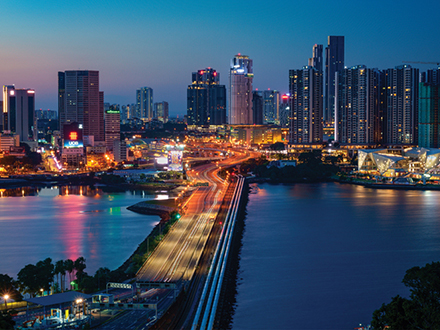
Find out how we can help you fast-track your investments in the JS-SEZ.
Learn moreyou are in UOB ASEAN Insights
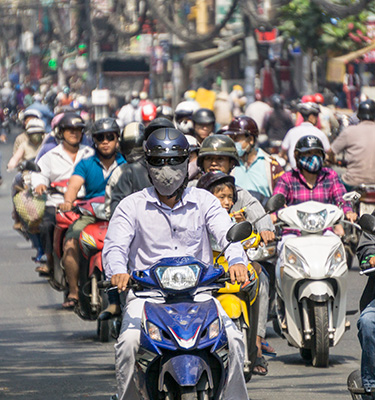
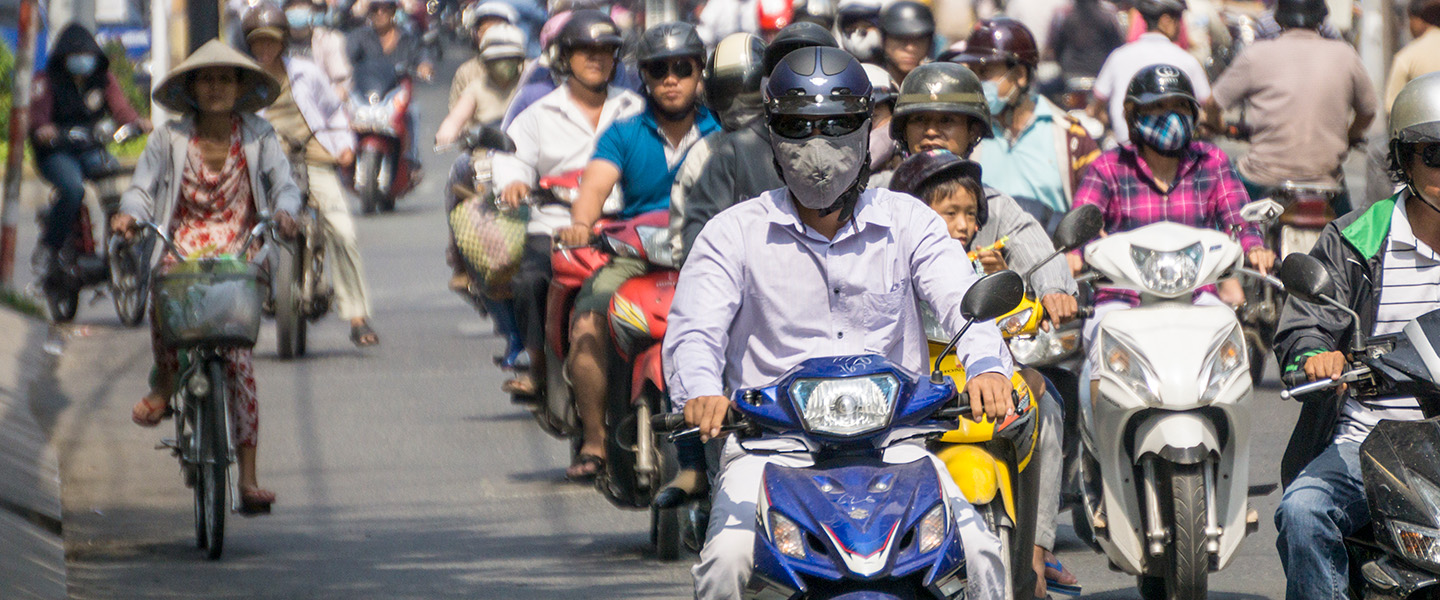
You are now reading:
ASEAN Consumer Sentiment Study 2023 (Vietnam): Concerns brew over rising expenses, declining savings
Like most developing countries, Vietnam has faced and navigated various socio-economic challenges. Take the recent COVID-19 pandemic, where despite having gone through unprecedented economic challenges, the country was able to make a swift recovery in 2022.
According to the ASEAN Consumer Sentiment Study 2023 – Vietnam report, about five in 10 respondents feel happy and content. The Study found that despite being generally optimistic, Vietnamese consumers are not looking at the future through rose-tinted glasses. On the contrary, they are anticipating and aware that uncertain times may be ahead.
In the region, Vietnam ranks second (next to Indonesia) in terms of how optimistic they are regarding their country’s economic situation. The Study found that 81 per cent of Vietnamese consumers have a positive outlook on the economy.
Mass Affluent (45 per cent) and Affluent (47 per cent) consumers are more relieved than consumers from other segments. Mass Affluent, in this case, refers to consumers who earn VND 30 million to VND 85 million, while the Affluent category earns at least VND 200 million or more. Three in four Vietnamese people also expect improvements in their financial situation in the coming year, with Affluent (86 per cent) consumers more optimistic than others.
However, while Vietnamese people have a more positive outlook overall, more consumers are feeling uncertain and anxious about the country’s economy. Vietnam has been experiencing an economic slowdown, particularly from late 2022 to the first half of 2023, due to higher global interest rates and poorer funding conditions, among other reasons.
Three in four Vietnamese expect an economic recession to happen in the next six to 12 months—a 19 per cent jump from last year’s number. However, Gen Xers are more optimistic than other generations, with 62 per cent of them doubtful that Vietnam will experience a major recession in the near future.
Eighty-one per cent of Vietnamese are concerned about their finances—a 23 per cent increase from last year’s survey. Vietnamese respondents worried about increased household expenses (62 per cent) and a decline in savings (52 per cent).
Compared to last year’s spending habits, one in two Vietnamese consumers are now spending more on utilities such as water, electricity, and gas. Other items where consumer spending increased include education-related expenses for children (47 per cent) and health supplements and medicine (39 per cent).
Additionally, the majority of Vietnamese consumers (92 per cent) are likely to spend more on sustainable products and services for food, beverages, and groceries as well as for home and personal care items.
As for saving habits, only 29 per cent of Vietnamese people are doing that this year—a 17 per cent decrease from last year.
In the past year, more Vietnamese banking customers, particularly Mass Affluent consumers, have shifted to mobile banking apps (57 per cent). This is due to the fact that many Vietnamese consumers (66 per cent) trust mobile banking apps more than they trust other digital banking channels.
Vietnamese consumers also strongly prefer online channels for different banking activities, including checking the status of rewards (61 per cent), transferring money overseas (53 per cent), and opening new bank accounts (50 per cent). The most popular payment methods in Vietnam involve e-wallets or QR code-based payments (67 per cent), mobile wallet credit or debit cards (58 per cent), and e-commerce payment platforms (55 per cent).
Over nine in 10 Vietnamese consumers also wish to receive personalised offers for products and services on different digital platforms. They are generally comfortable sharing their personal data, more so than other Southeast Asian consumers. Vietnamese consumers specifically trust banking apps (90 per cent), e-commerce as well as shopping apps (84 per cent) with their data, which result in a strong demand for personalisation on these platforms.
Vietnamese consumers are particularly willing to share data on online shopping activity (66 per cent), food delivery or dining habits (52 per cent).
When it comes to identifying the top sustainable goals for Vietnam, respondents cite quality education (41 per cent), good health and well-being (41 per cent), as well as affordable and clean energy (40 per cent).
Behaviour-wise, more than two in five are already adopting practices like reusing bags, reducing water, and recycling waste. In fact, more consumers are using electric vehicles and supporting green-certified companies than others in the region.
In terms of investments, more Mass Affluent consumers are already including sustainable investments in their portfolio. But demand may be outpacing supply: More than nine in 10 Vietnamese think that banks and other Financial Institutions should provide more sustainable investing solutions for customers to choose from.
Vietnamese consumers are especially concerned about the possibility of losing their bonus (51 per cent), having their pay cut (48 per cent), and losing their job (47 per cent).
Despite work-related concerns, Vietnam is ahead of the region in terms of how satisfied its workers are with the mental health support provided by their employers. Ninety-two per cent of Vietnamese employees are contented with their companies’ mental health support, compared to with the 81 per cent regional average.
Around seven in 10 consumers currently feel calm at work—a 44 per cent increase from last year’s numbers. This is also 19 per cent higher than the regional average.
Compared with others in the region, more Vietnamese consumers (39 per cent) expect their employers to cover mental health-related expenses. Currently, around 14 million people in the country suffer from mental disorders, but Vietnam only has a limited number (less than 150) of clinical psychologists and psychotherapists. Clinical psychology services are also not typically included in health insurance.
This expectation is significantly more pronounced among Boomers. Mass Affluent individuals, too, have greater expectations for mental health and physical wellness coverage, compared to Mass and Affluent subgroups.
For Vietnamese workers, flexible work arrangements are among the most desired health-related benefits. The top mental health initiatives valued by Vietnamese workers include sabbatical leave (52 per cent), flexible working hours (50 per cent), and options for flexible loads (45 per cent).
Forty-four per cent of Vietnamese employees prefer hybrid work, but only 36 per cent are actually working in jobs that provide such arrangements. Thirty-two per cent of Vietnamese workers still work exclusively at their offices, even though only 13 per cent of workers prefer this setup.
For Vietnamese workers who prefer exclusive work-from-home setups, improved health is among their top reasons (54 per cent). Work-from-home setups also allow employees to consume more home-cooked meals, while having more time to exercise and wind down.
At UOB, we help businesses navigate the dynamic landscape of the ASEAN region to unlock its full potential. Contact us to find out more about our tailored solutions, industry knowledge and market expertise.
The ACSS 2023 reports and infographics are now available for download:
ASEAN Consumer Sentiment Study (ACSS) is UOB’s regional flagship study analysing consumer trends and sentiments in five countries: Singapore, Malaysia, Thailand, Indonesia and Vietnam. Now in its fourth year, the survey was conducted in June 2023 and captures the responses of 3,400 consumers across different demographic groups in this dynamic region. In Vietnam, 600 consumers were surveyed.
Some of the areas covered include:
This article shall not be copied or relied upon by any person for whatever purpose. This article is given on a general basis without obligation and is strictly for information only. The information contained in this article is based on certain assumptions, information and conditions available as at the date of the article and may be subject to change at any time without notice. You should consult your own professional advisers about the issues discussed in this article. Nothing in this article constitutes accounting, legal, regulatory, tax or other advice. This article is not intended as an offer, recommendation, solicitation, or advice to purchase or sell any investment product, securities or instruments. Although reasonable care has been taken to ensure the accuracy and objectivity of the information contained in this article, UOB and its employees make no representation or warranty, whether express or implied, as to its accuracy, completeness and objectivity and accept no responsibility or liability for any error, inaccuracy, omission or any consequence or any loss or damage howsoever suffered by any person arising from any reliance on the views expressed and the information in this article.

09 Dec 2025 • 5 mins read
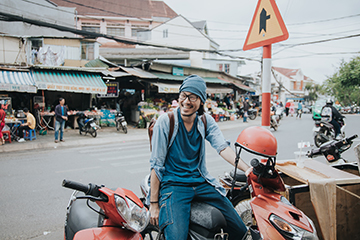
20 Nov 2025 • 5 MINS READ
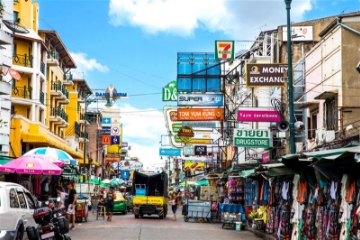
06 Nov 2025 • 5 MINS READ

01 Sep 2025 • 5 MINS READ